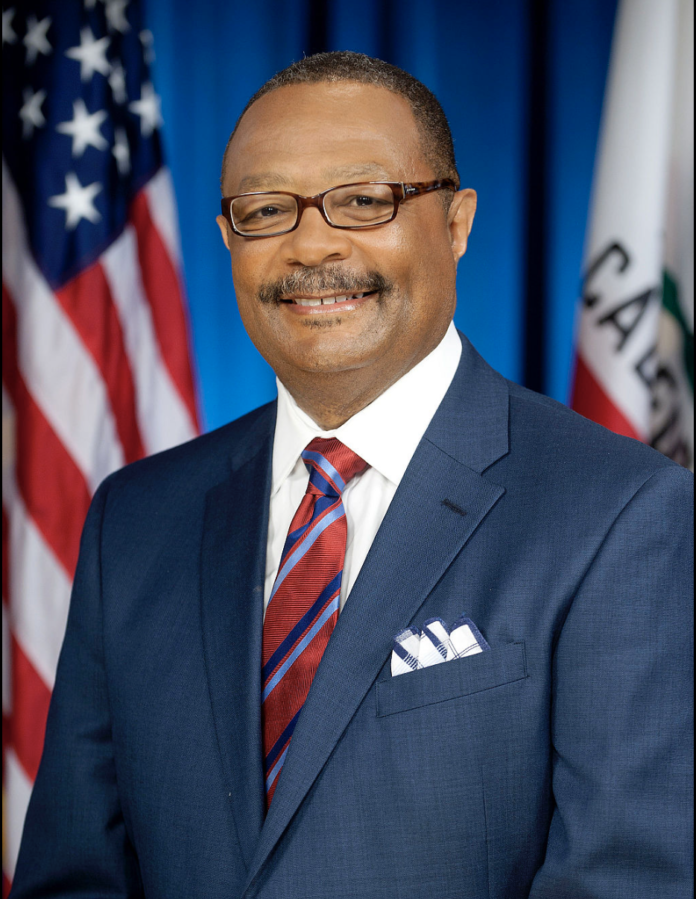
By Aldon Thomas Stiles, California Black Media
The California Legislature is currently considering several bills related to gun safety, criminal justice, and police accountability.
Several of these bills have already been approved by the Assembly Safety Committee and are now under review by other legislative committees. If passed, they could affect policing in your community, juvenile arrests and rights, tickets for traffic violations, and state policy around gun ownership.
Public Safety Committee Chair Assemblymember Reggie Jones-Sawyer (D-Los Angeles) authored Assembly Bill (AB) 574. Under the proposed bill, gun owners would need to confirm possession of all their registered weapons when purchasing a new gun.
Jones-Sawyer maintains “many firearms are not reported missing or stolen until they have been used in a crime.”
Daniel Reid, western regional director of the National Rifle Association (NRA), has voiced his organization’s opposition to AB 574.
“We feel like the bill lacks clarity,” said Reid. “If the firearm can’t go without a ‘yes’ answer you have a Fifth Amendment issue. It violates your right against self-incrimination. People can’t be compelled to incriminate themselves if they are in violation of this law.”
The Assembly Appropriations Committee is currently reviewing AB 574. A hearing date has not yet been set.
Jones-Sawyer has also introduced AB 1090. It would allow a board of supervisors to remove an elected sheriff with a four-fifths vote.
The bill states that sheriffs facing removal would be notified of the reason t and would have an opportunity to defend themselves.
Cory Salzillo, Legislative Director of the California State Sheriff’s Association, opposes AB 1090, claiming it undermines the electoral process.
“This is not good government,” said Salzillo. “This is disenfranchising voters.”
Explaining why the bill is needed, Jones-Sawyer said, “the bill provides counties with a meaningful tool to remove a sheriff for serious violations of the public trust.”
AB 1090 is currently under consideration in the Assembly Local Government Committee.
Assemblymember Rebecca Bauer-Kahan (D-Orinda) authored AB 1643. This bill would prohibit minors — ages 12 to 17 years old — from participating in a program of supervision unless the minor has committed an offense in which the restitution owed exceeds $5,000.”
Proponents of AB 1643 clarified that this bill would allow minors to be eligible for diversion programs, and judges and probation departments will still have discretion.
This bill is part of California’s broader effort to reform its criminal justice system by prioritizing rehabilitation over punishment.
Supporters of this bill say one of its goals is to avoid the trauma and stigma associated with youth who go through the criminal justice system.
Last week, the Assembly Appropriations Committee postponed a hearing on the bill.
AB 642, introduced by Assemblymember Phil Ting (D-San Francisco), would limit the use of facial recognition technology (FRT) by law enforcement in felony arrests and prevent individuals from being stopped based on FRT information. The bill would also require law enforcement agencies to have written FRT policies and maintain records of its use, which would be reported to the California State Auditor.
AB 642 is not Ting’s first attempt to restrict FRT. The lawmaker’s AB 1215 in 2019 temporarily banned the use of FRT in body cameras for three years.
The American Civil Liberties Union (ACLU) expressed their opposition to AB 642 because the civil rights advocacy organization believes it does not go far enough.
“If it is intended to stop the civil rights disaster that is admittedly face recognition surveillance, it unfortunately backfires,” said ACLU California Action Director of Government Affairs Carmen-Nicole Cox. “The recently authored amendments do not adequately protect against freedom from unreasonable government surveillance, wrongful seizure, or dissuade its misuse.”
Another bill Ting introduced, AB 645, authorizes a five-year pilot program that would temporarily legalize speed enforcement cameras in six California cities: Los Angeles, San Jose, Oakland, Glendale, Long Beach and San Francisco.
“My city of San Francisco is committed to reducing traffic fatalities to zero,” Ting said in a press release. “More than 70% of our city’s fatalities occur on just 12% of our streets.”
The pedestrian advocacy group Walk San Francisco has been a vocal supporter of AB 645 while other organizations like the American Civil Liberties Union have strongly opposed it, citing its encroachment on privacy rights.
The Assembly Committee on Privacy and Consumer Protection voted to approve AB 645 and has referred it to the Appropriations Committee for consideration.
The Assembly Public Safety Committee voted to place AB 1260, authored by Assemblymember Joe Patterson (R-Rocklin), “on call.” The “on call” designation means that the legislation is subject to change, but it has not been rejected.
AB 1260 would require parole departments to determine an inmate’s minimum eligible parole date based on their sentence and any credits earned or expected to be earned during incarceration. Credits refer to points awarded for good conduct or behavior. The bill would also require parole departments to notify the district attorney when an inmate is being released based on credits earned or revoked and the county to which the inmate is returning.
Patterson stated his bill would provide more standardization and oversight for sentence lengths based on the credit system.
“How can we be sure that an inmate is serving the proper length of time – and this includes possibly serving too much time – without any third-party verification whatsoever?” questioned Patterson.
A representative of the advocacy group Initiate Justice says that AB 1260 is “not necessary,” because there already exists an online victim notification system.
But proponents of the bill argue that the current system places the burden on relatives and next of kin to keep checking online to see if the release date has changed.



